Guidelines for launching a blog
Here's what I learned and would recommend you to do when launching your blog.
It's hard to imagine, but just one year ago today I wrote and published my own first blog post in this website.
Nothing fancy. Just the first test on launching my own website and blog as a part of my path to learn and grow as a developer.
I learned a lot along the way, but here they are the most important lessons that I got when launching and maintaining my blog throughout the year.
Own your content
Owning your content is different from owning your platform. I think you should do both and this is the second most important lesson here.
Time and time again, people have showed you that leveraging only from social media (or third-party services only from that matter) has negative consequences in the long run.
Social media companies can get you shadow-banned, limit your reach or simply close your account. I'm not saying that you shouldn't use social media, you should use social media and leverage from it, but don't let them be your ONLY communication system.
Killing you overnight after years and years of work isn't the greatest feeling in the world and it shouldn't be happening, but it does.
The only way to prevent this is to own your content. Just like Scott Hanselman mentioned in his post Your words are wasted, he writes:
Why doesn't someone make a free or cheap social network for the people?
Why can't I control my content?
Why can't I export everything I've written?
Who owns what I type?
Why isn't there an open API for my content?
Why can't I search posts over a month old?
Why can't I have this or that username?
Why am I not verified?
All these questions are asked about social networks we don't control and of companies who don't have our best interests at heart. We are asking these questions in 2012? Read those bullets again. These were solved problems in 1999.
And he's right. These problems have been solved a long time ago. Just buy your own domain and blog on your platform of choice.
But you may be wondering, what platform should you use?
Own your platform
Blogging wasn't invented yesterday. In fact, it has been around since 1994.
It's been almost 30 years since then and blogging platforms technology has been pushed forward for publishing the easiest and most practical way possible.
Flavio Copes on Build your own platform, writes about the key features that your own platform should have:
Your platform can have different looks, may be similar to the platforms used by others, or it may be something unique, never seen before. There is no rule saying that the platform must use a particular type of software. It could be a blog, a static site, a forum.
What matters is that your platform meets some key features:
You must have complete freedom over it
You have to be able to contact your users whenever you want
You must be able to extract all the data from this platform as and whenever you want
you do not have to be at the mercy of others’ decisions
Here are my platforms recommendations to meet these key features:
Platforms for everybody
Use Ghost or WordPress. In the case of this website, I decided to go with Ghost.
Whichever you like is fine, keep in mind that you'll have to pay for hosting. Whether you self-host your server or delegate that to the corresponding companies (ghost.org or wordpress.com) is fine too.

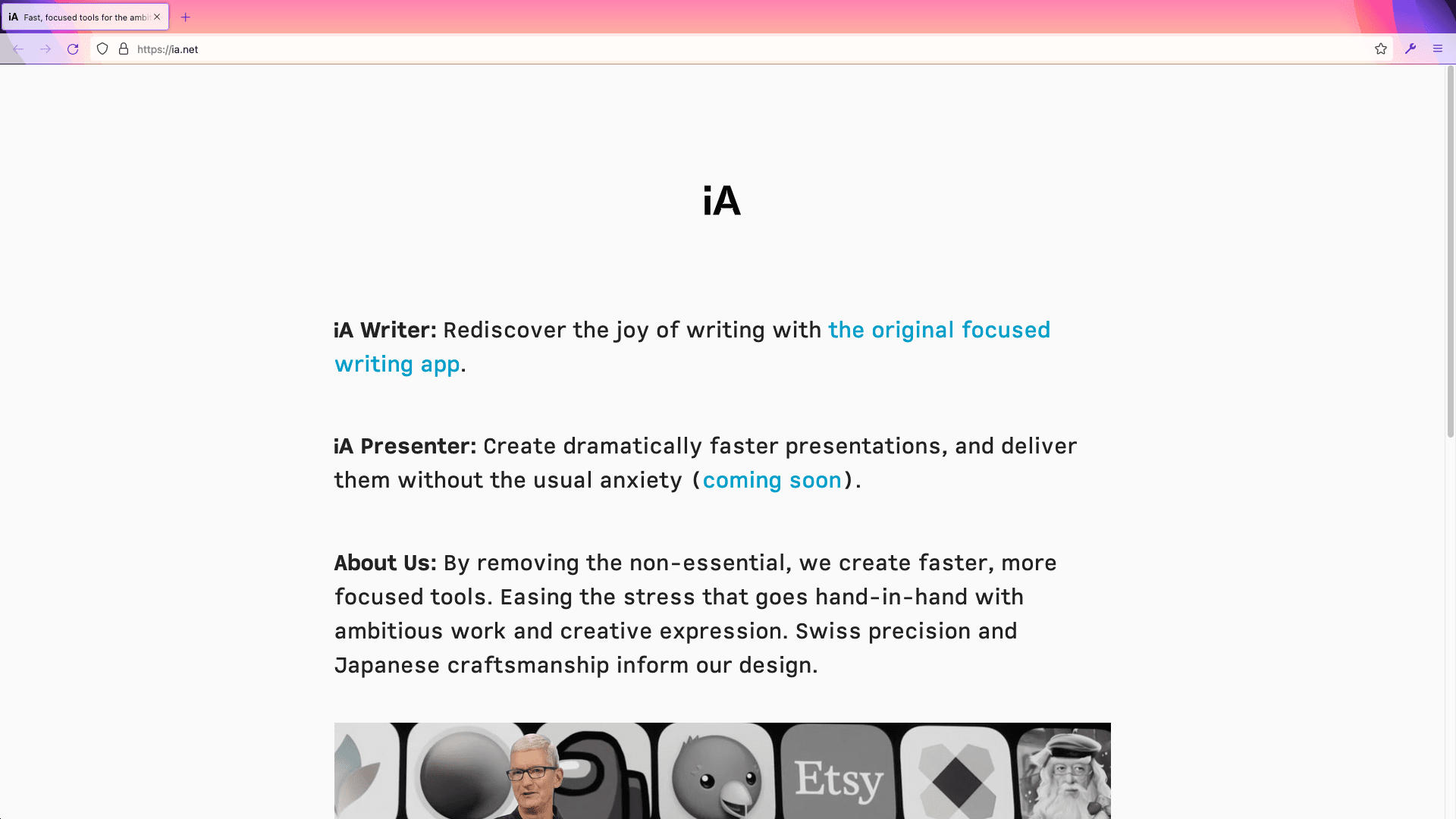
WordPress showcase: Randall Kanna and iA websites.
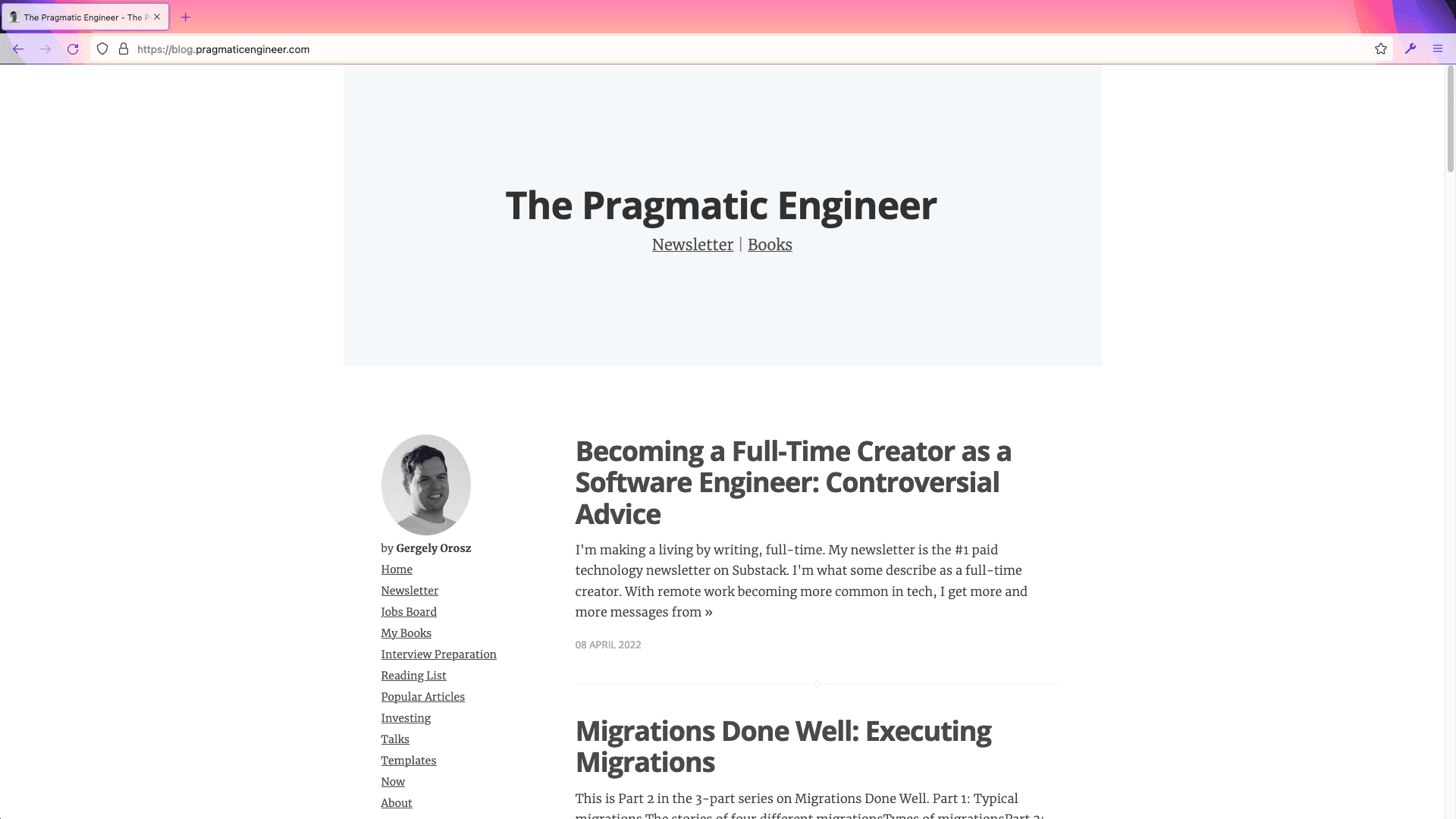
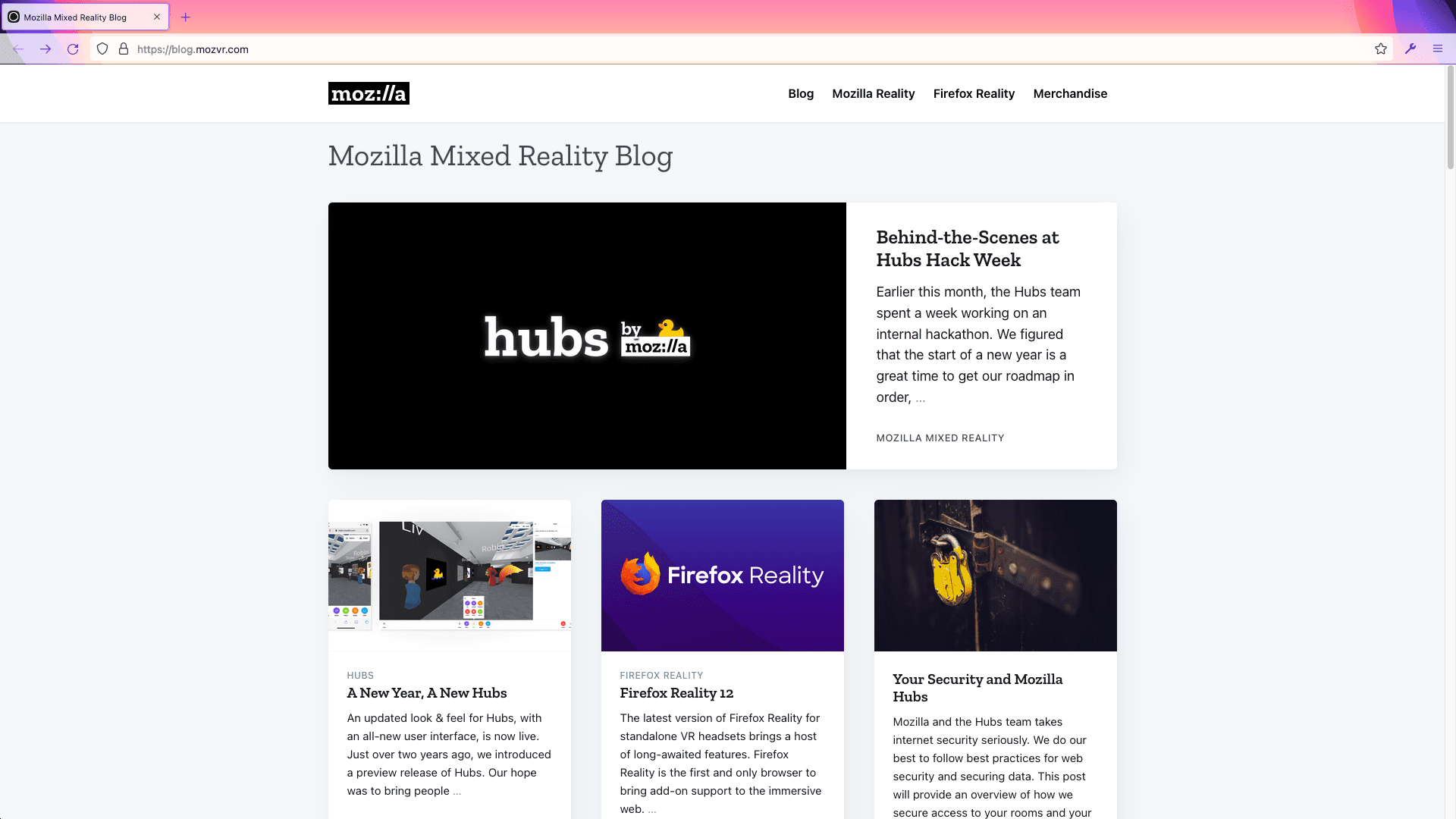
Ghost showcase: Pragmatic Engineer and Mozilla Mixed Reality Blogs.
Choose the one that best suits your needs and that you like.
These products believe in giving you full ownership of your own payments, hosting, customer data and your content, so you can freely move your site or business between different services if that's what you want.
You control how the website looks. You control what to present to your audience. It's your choice and not someone's else.
Platforms for hackers
If you don't like the idea of hosting, self-hosting, maintaining a server or you just feel like it, you can blog using static site generators.
You don't have to be a hacker to use these platforms, but they have a bit of a learning curve in comparison to WordPress or Ghost.
Also, keep in mind that you lose the advantages of using a server, like collecting your email list locally (without third-party services), local comments or publishing members-only posts.
For these kind of platforms, I'd recommend you going for either Jekyll or Hugo.
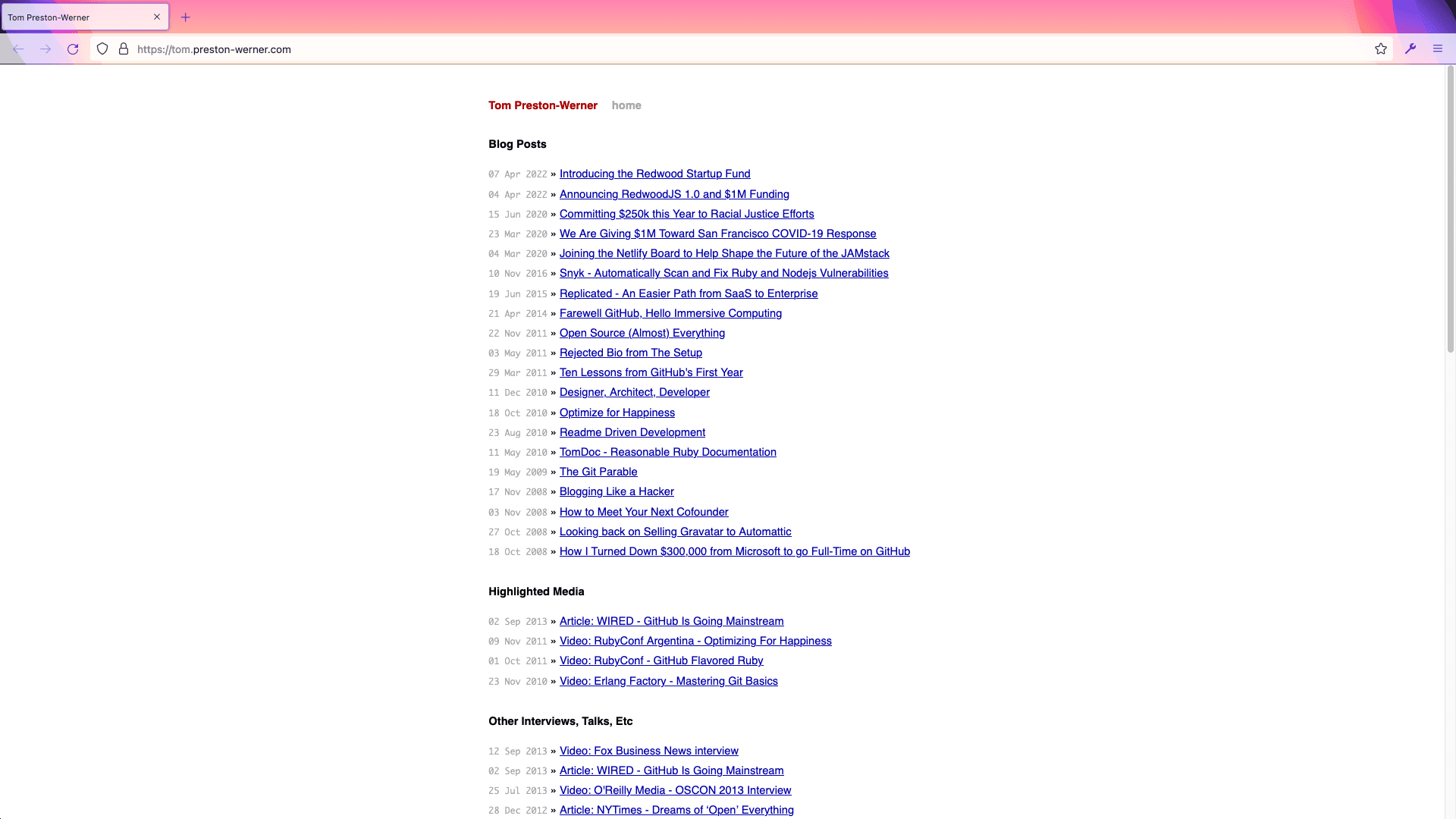
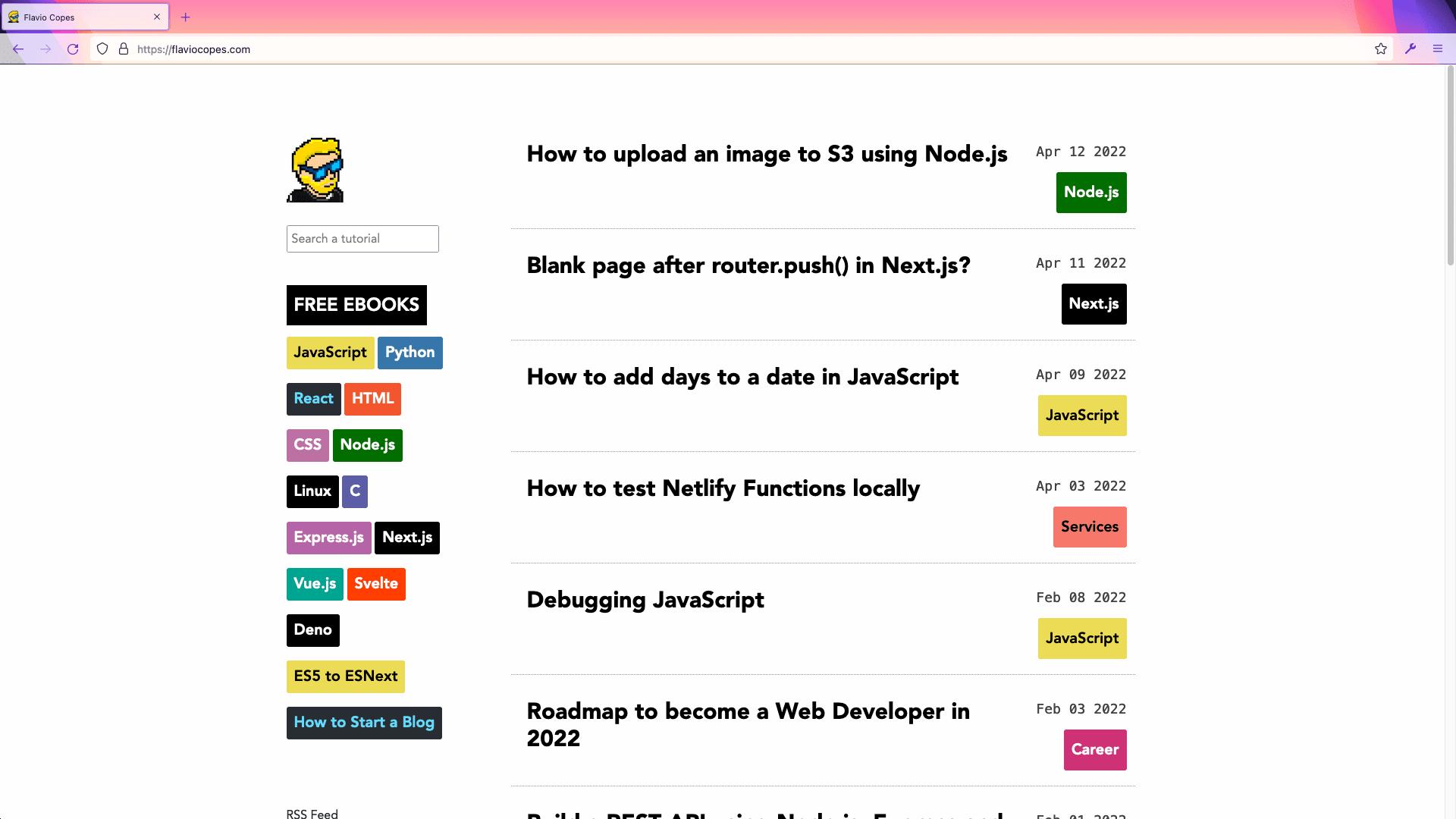
Jekyll is a simple, blog aware static site generator written in Ruby. Hugo is a flexible and fast static site generator written in Go.
For blogging purposes, again, it doesn't matter which is better than the other.
Choose the one that best suits your needs and that you like.
What about free-to-write platforms?
Getting started on free places where you keep your copyright like Substack, Hashnode or dev.to can also be an option. You might get more feedback or comments in an instant and you don't have to wait to build an audience.
The big downside with free-to-write platforms is that you don't really own your platform. Yeah, you can export your content (hopefully), but you don't really decide what to present to your audience end-to-end.
Just check any website's footer on Substack or Hashnode.
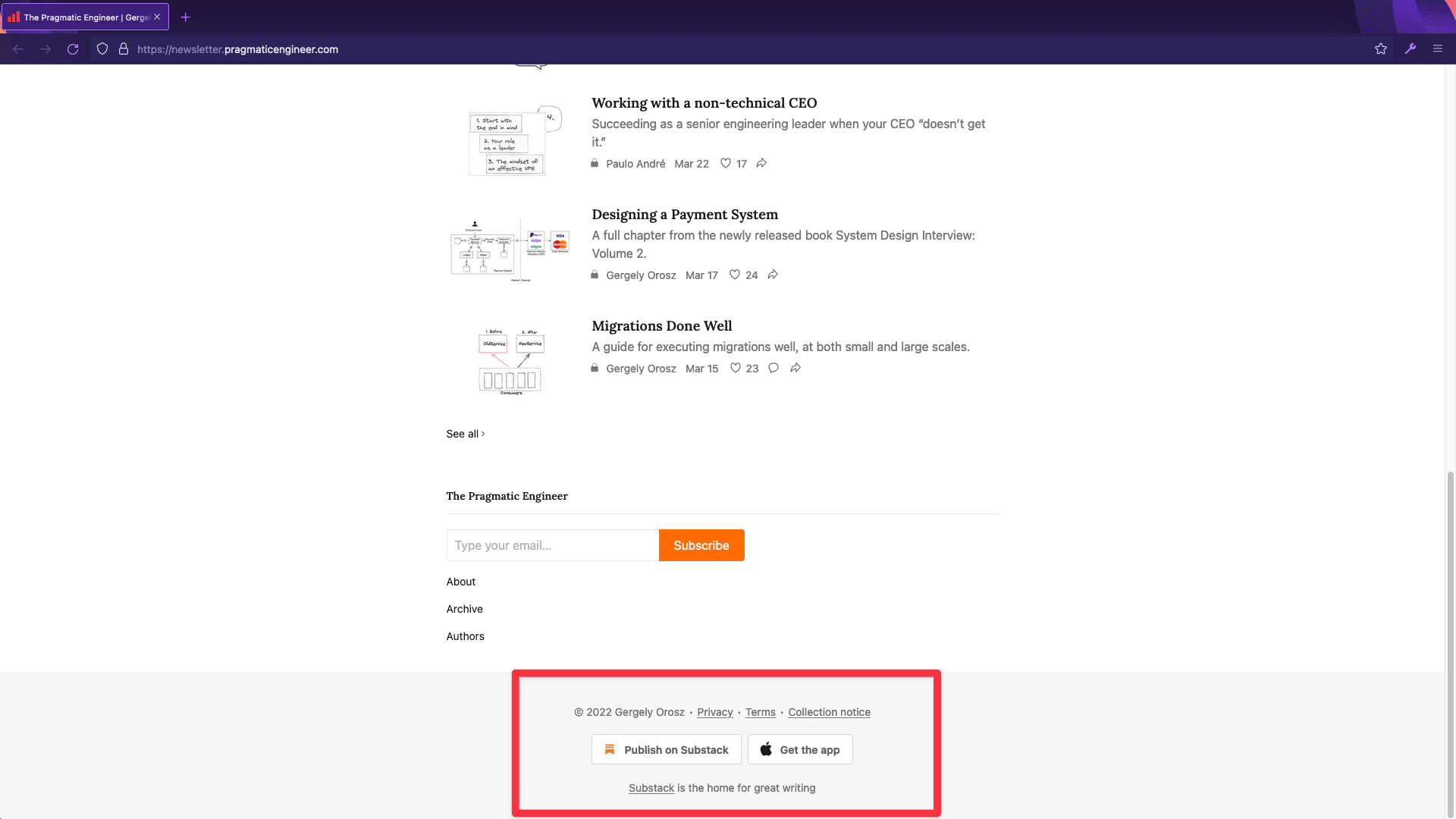
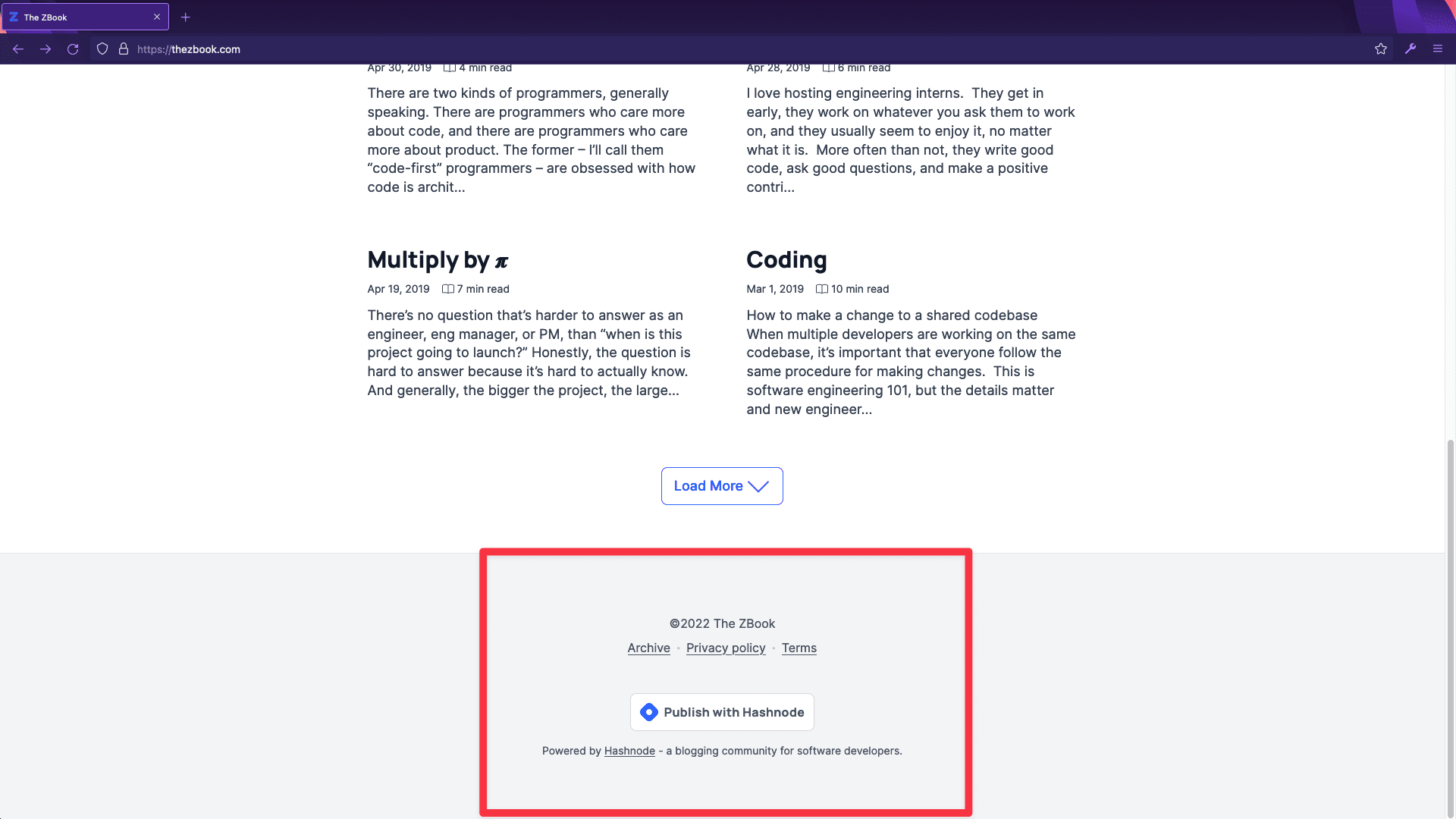
A Substack and Hashnode website side-by-side. Just check the footer of both sites.
As you may see, both sites have their own domain, but can't control how the website looks end-to-end, and is evident with the CTAs on the footer of each site.
These companies make a business directly or indirectly monetizing your writing and the traffic it generates.
How did you expect them to make money (as companies) when offering a free service? What if they decided that you can no longer export your content out of these platforms and you didn't export in time? What if you (as the owner of your site) wanted to branch out and start selling something too?
This is evident with Medium. When it started out, everything was free to publish and consume. Now, much of the content hosted there is paywalled and you may be obligated to move off.
It's harder to launch, but my recommendation when starting out: Own your content and own your platform from the very beginning.
What about paid proprietary platforms like Squarespace or Wix?
Paying for getting locked-in? No, thanks.
Stand on the shoulders of giants
If you're launching a blog, is because you want to share your writings, right? That's the point of a blog, writing and sharing stuff.
Then... please, I beg you, DO NOT try to reinvent the wheel and launch your blog from scratch.
If you ever pretend to achieve success for your blog and reach to your future readers, don't waste your time starting from the ground-up writing your own blog system. What's the point of that?
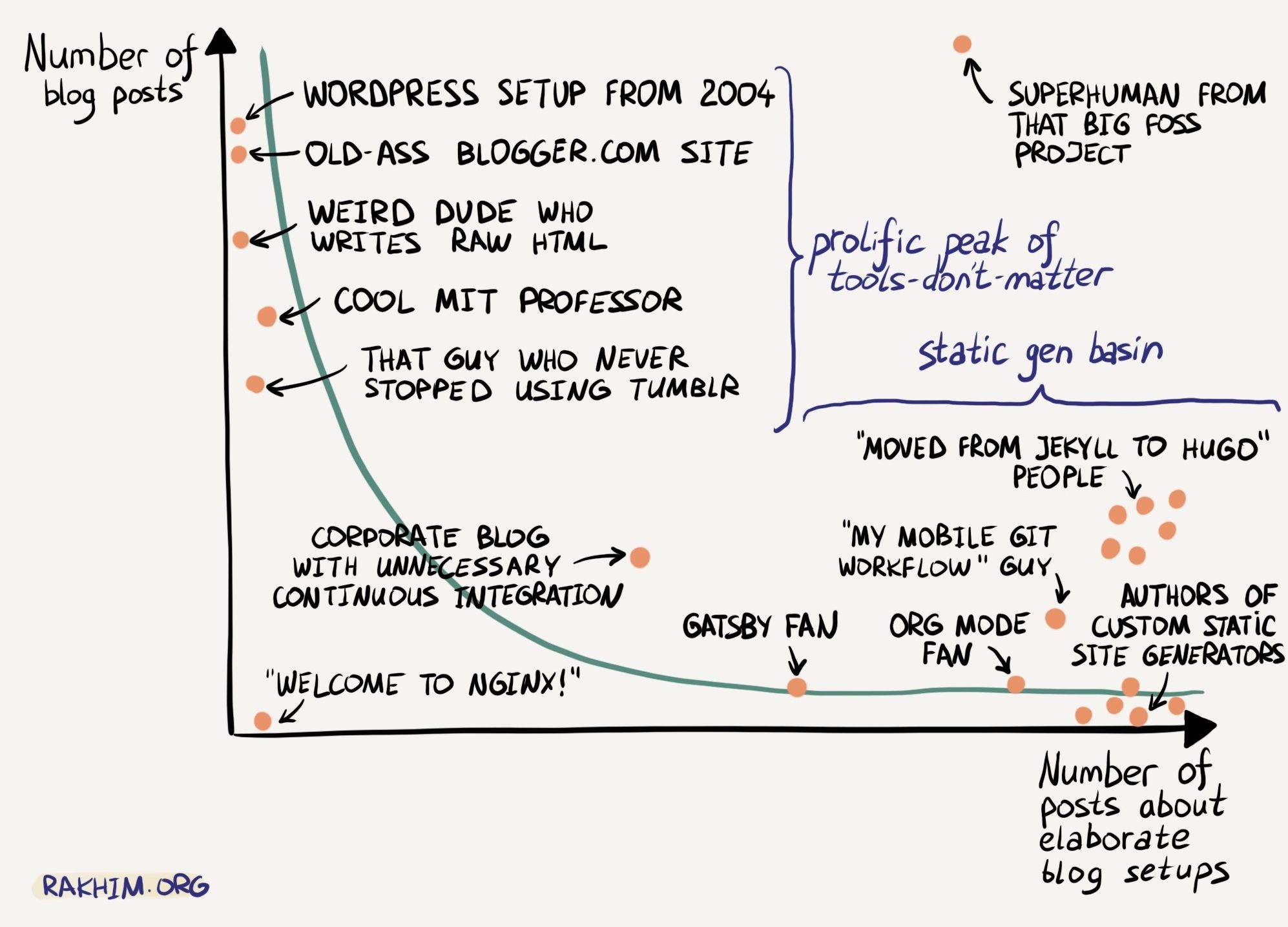
You may say that you want to launch your blog from scratch "for learning purposes", but you may be underestimating the task at hand.
Many people have already invented and re-invented many ways to deploy and launch blog systems (did you read the last section?).
Focus on your writing, delegate the software to the many other providers mentioned above.
If you want to learn software development, there are better and more practical ways to do that.
Nobody is watching
What's the point of writing in public if nobody is going to read your content?
Of course. At the start, nobody is watching. And you should leverage that.
There's no pressure, no one expects anything from you, you can write anything you want! Enjoy it while it lasts and start writing for yourself.
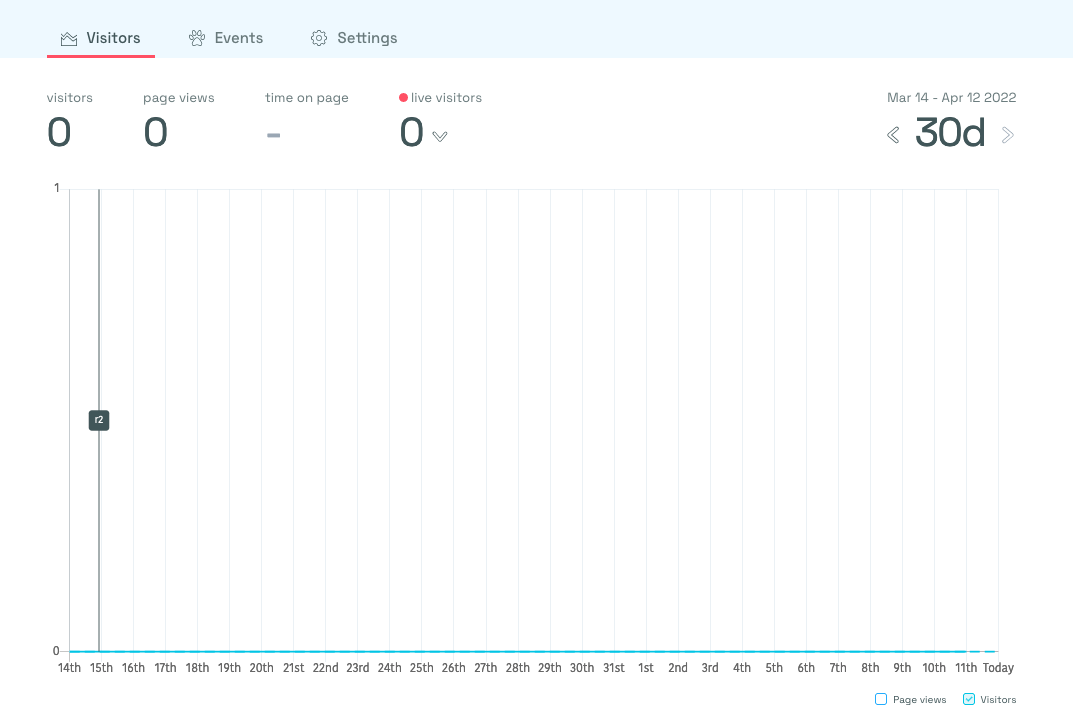
Overnight success doesn't exist, you have to put on the work for the eventual readers that will come to you overtime. Effort compounds.
It has taken a year of tinkering my site, change domain name, sharing stuff Twitter and most importantly, writing articles on this site, to reach a few readers everyday all around the globe.
It's not much, but that's a win for me. And I appreciate you for reading, thank you!
Evergreen your content
The point of having a blog too, is to write important stuff that you want to share and have it accessible for months or years after it was published.
In comparison to content in social media (except maybe YouTube), the content that you publish will disappear in a sea of noise and algorithmic recommendations probably within 24 hours after it was published.
This makes it really hard to rediscover old and good content. All the effort that you put it in that piece of content basically goes to waste. This doesn't happen with good articles in your blog.
A good and useful article is good and useful today, and is probably going to be good and useful in the future, so people will come back to read it years down the line, and Google will rank you better on search.
This is what I mean when you evergreen your content. Keep in mind what you write and publish today
This becomes a little annoying with technical articles, though.
Technology changes at such fast pace that keeping tech guides and articles up-to-date becomes a task of a different magnitude, so keep that in mind.
If you have the time, and for the sake of your readers, come back to your old tech articles and update them as you see fit.
Go for .com, .org or .net for your domain name
If it wasn't obvious, own your domain name. Pay for it in the name registrar that you prefer and stick to it. With that out of the way...
I've written about domain names before and explained my reasoning on TLDs there.
I don't want to get too deep into it because it isn't THAT important, but might as well add this section here.
If your ideal domain name is available, go for the well-old reliable trio for your blog: .com, .org and .net in that order. Or get all three if you possible and use .com.
Changing your domain name later is a pain. Might as well start with the right foot and choose the best available name from the get-go.
You can go with whatever domain name and TLD you want, but .com, .org and .net gives you more flexibility and recognition for you in the long run.
Start writing and keep going
At the end of the day, the only thing that matters is writing good content.
Your readers reached your blog to read useful or amusing content.
Not to watch how pretty is your website, not to watch you struggle maintaining your website, they came here to read.
Jeff Atwood writes on How To Achieve Ultimate Blog Success In One Easy Step:
When people ask me for advice on blogging, I always respond with yet another form of the same advice: pick a schedule you can live with, and stick to it. Until you do that, none of the other advice I could give you will matter. I don't care if you suck at writing. I don't care if nobody reads your blog. I don't care if you have nothing interesting to say. If you can demonstrate a willingness to write, and a desire to keep continually improving your writing, you will eventually be successful.
But success takes time – a lot of time. I'd say a year at minimum. That's the element that weeds out so many impatient people. I wrote this blog for a year in utter obscurity, but I kept at it because I enjoyed it. I made a commitment to myself, under the banner of personal development, and I planned to meet that goal.
After acknowledging the second most important lesson of owning your content and your platform, this is the most important lesson:
